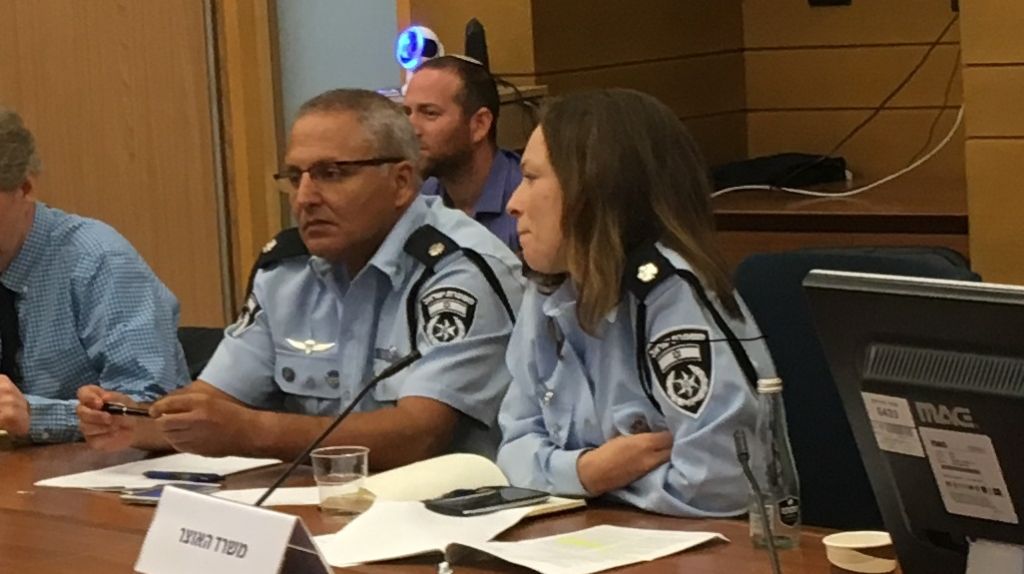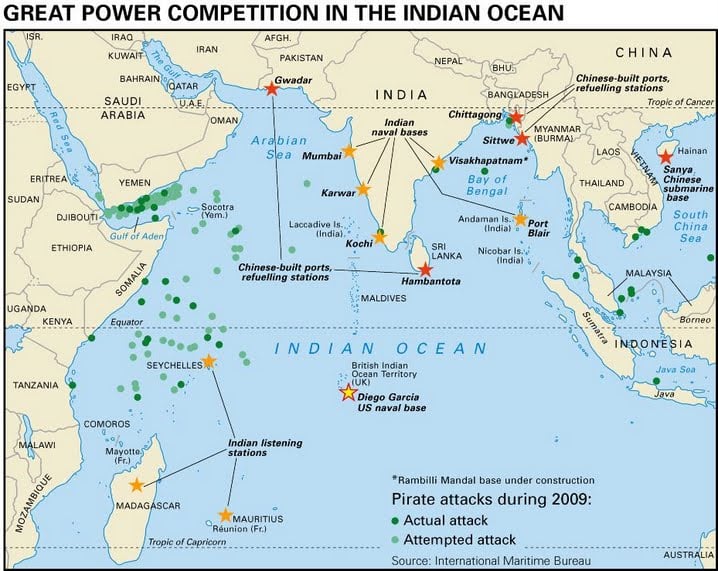The other day, I was sitting at a picnic with several friends when someone referred to Vladimir Putin’s Russia as a “mafia state.”
A Russian-born woman objected: “That is really offensive. Russia is a country of 140 million people. It is wrong to say they are all mafia.”
“I am not referring to the people,” said the first speaker. “The majority of Russians are good people. Most are victims of the regime they live under. But it is a fact that there is an overlapping corrupt elite that permeates the entire political and economic system as well as all major centers of decision-making. And this elite is connected to organized crime groups.”
With striking similarity, on a recent vacation in Washington, DC, I found myself talking to a Jewish woman who works in the US government. “I don’t understand,” she said with dismay. “In America, Jewish people are upstanding citizens. What is happening in Israel?”
The woman was referring to the massive growth of organized crime in Israel over the past ten years, as well as the fact that Israel has become one of the world’s leading exporters of investment scams, stealing an estimated $5 billion to $10 billion per year from victims worldwide.
Despite the fact that Israeli police recently announced that these investment scams are largely run by organized crime, which has grown to “monstrous proportions” as a consequence of little to no law enforcement for years, the Israeli government, parliament and authorities have to date proved unwilling or unable to shut them down, in part because these fraudulent industries have a powerful lobby in the Knesset.
“Most Israelis are good people,” I told the Washington woman in Israel’s defense. “It’s just the system that is broken.”
Indeed, Israel’s democratic system has become riddled with the corruption of late. Analysts who study Israel’s high-tech sector (and who were unwilling to talk on the record for fear of angering their colleagues) told The Times of Israel last year that an estimated 25 percent of the revenue of Israel’s lauded high-tech sector comes from shady or fraudulent industries, including online gambling, binary options, forex, downloaders/injectors (companies that put malevolent software on your computer without your knowledge), and the payment, affiliate marketing and adtech companies that service these industries.
Israel’s Finance Ministry recently issued a report showing that the cost of nearly every consumer product, with the exception of education and produce, is significantly higher in Israel than the OECD average. Analysts attribute this high cost to monopolists and rent seekers who pull strings and lobby the government to block competition in industry after industry.
Meanwhile, apartment prices have risen 118% in the last ten years, for reasons economists cannot fully explain. Recently, the sale of new apartments has slowed, which a report in The Marker by Nimrod Bousso attributes to a recent crackdown on money laundering in Israeli banks ordered by the Bank of Israel’s Supervisor of the Banks. The report suggests that rampant money laundering was a significant factor in the rise of apartment prices in the first place.
Dr. Avichai Snir, an economist at Bar-Ilan University, published a paper on the impact of money laundering on rising apartment prices in October 2014. He used the modified cash-deposits ratio method — an approach employed by economists to assess the size of a country’s shadow economy, based on how much cash is in circulation — and calculated that between the years 2008 and 2014, Israel’s off-the-books economy soared from approximately 22% to 28% of the country’s GDP. This is an astounding jump. The first figure puts Israel in the company of countries like Italy and Spain; the second resembles economies like those of Romania and Bulgaria.
Snir has yet to calculate percentages for the years 2014 to 2017 but told The Times of Israel he intends to explore new methods of measuring money laundering that has its origins online.
On a separate but related note, a Knesset member recently told The Times of Israel that three-quarters of the 120 parliamentarians here are in thrall to special interest groups, whose lobbyists and PR flaks crowd the halls of the Knesset, and are relentlessly pressured to the point where the public interest, this MK lamented, becomes a weak voice in the back of their heads. The Times of Israel’s editor, sitting next to me as the MK in question delivered this shattering assessment of 90 colleagues was so horrified that he asked for it be repeated, to be sure he had heard correctly.
Tzvika Graiver, a lawyer for the Keep Olim in Israel Movement, told The Times of Israel recently that when he attends Knesset panels to advocate on behalf of steps that would ease life for new immigrants, he invariably finds himself seated alone amid an army of lobbyists and indifferent government bureaucrats.
For instance, in November 2016 there was a Knesset panel on the “black market” of driving instructors who demanded hefty sums of money from new immigrants before agreeing to set a date for a driver’s test. “It was our non-profit against an array of lobbyists for the driving teacher’s association, the licensing bureau and others.”
Graiver actually won that battle against the driving instructors’ lobby, but his accumulated experience has left him with a feeling that the deck is stacked against the public interest in Israel’s parliament.
“Lobbyists control the Knesset; they set the agenda and they usually win,” he said. “There is no question that the majority of Knesset members today work on behalf of lobbyists and not the people.”
Earlier this year, draft legislation that would have banned all of Israel’s fraudulent online trading companies, and not just the part of the industry called “binary options,” was watered down in the course of behind-the-scenes consultations among the Israel Securities Authority, the Justice Ministry and the online trading industry itself. Anti-fraud advocates were stunned to arrive at the Reforms Committee meeting where the legislation was being debated to discover that the bill had been constricted and truncated without their knowledge, as a direct consequence of input from the very industries it was originally formulated to target.
Asked how this happened, one Israeli forex company owner told The Times of Israel, “You have no idea who you are dealing with. This is an industry that has way too much money and influence. Do not concern yourself over such things.”
Moises Naim, a Washington DC-based thinker who penned the watershed essay “Mafia States,” has delineated several stages through which a state descends into mafia statehood. The first is called “criminal penetration,” when a criminal organization is able to place “one of its own” in the state structure. The second is “criminal infiltration,” which Naim defines as “when the infection has spread throughout the state apparatus within the given country, and the linkages to external illicit networks proliferate.”
Finally, there is a stage called “criminal capture” which is defined as “the condition of dysfunctional governance in which criminal agents are so sufficiently prominent in positions of state authority that their criminal actions cannot effectively be restrained by the state. At some point, it may become part of state or substate institutional doctrine to engage in illicit activity.”
One notorious example of alleged criminal penetration occurred in Israel in 2003, when Inbal Gavrieli was elected to the Knesset for the Likud party. In a 2009 cable leaked by Wikileaks, the US ambassador to Israel wrote, “The election of Inbal Gavrieli to the Knesset in 2003 as a member of Likud raised concerns about organized crime influence in the party’s Central Committee. Gavrieli is the daughter of a suspected crime boss, and she attempted to use her parliamentary immunity to block investigations into her father’s business.”
Naim cites Russia and Venezuela as examples of countries with criminal infiltration, while Guinea-Bissau is an example of complete state capture.
It is unclear where Israel falls on this spectrum. In 2009, the US Embassy wrote of a “growing problem” of organized crime elements “penetrating the Israeli establishment and corrupting public officials.”
In his book “Rock, Paper, Scissors: Game Theory in Everyday Life,” Len Fisher describes the problem of corruption as akin to the “Stag Hunt” scenario in game theory: A group of people set out to hunt a stag. If they all cooperate, they are likely to be successful. But if a few decide not to hunt stag but to hunt hares, which are easier to catch, for their own personal benefit, the entire enterprise fails and more and more stag hunters decide they are better off looking out only for themselves and hunting hares.
Once you have a society where most people are hunting hares, it is very difficult to evolve back to the stag hunting (non-corrupt) scenario. Even if a few hare hunters stop being selfish and decide to cooperate, the group dynamic quickly reverts back to the default of hare hunting. But not all hope is lost, because societies of stag hunters have in fact spontaneously emerged in history, and this, said Fisher, is often because many individuals change their minds about what other members of society will do and begin to trust each other.
It is clearly in Israel’s interest to enforce the rule of law and uproot criminality, among other reasons because corrupt states suffer dire economic consequences. (Russia’s economy is shrinking, despite the constant supply of income from oil.) But there appear to be too many hare hunters in today’s Israel, looking after their own interests, and not enough stag hunters. This could change if more ordinary Israelis got involved in the battle to fight corruption. While the system shows signs of being broken, most Israelis are decent people, emphatically deserving of a society in which the rule of law is enforced and criminality is relentlessly faced down and uprooted.





















